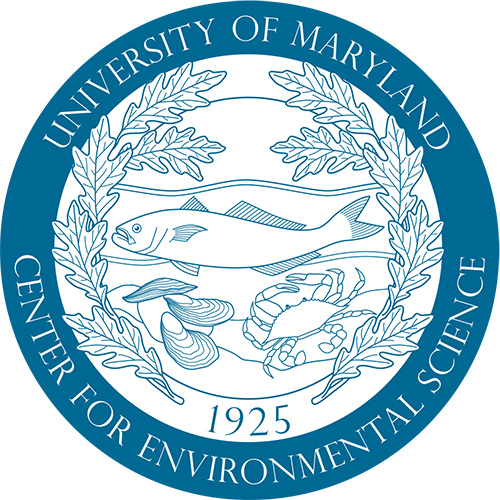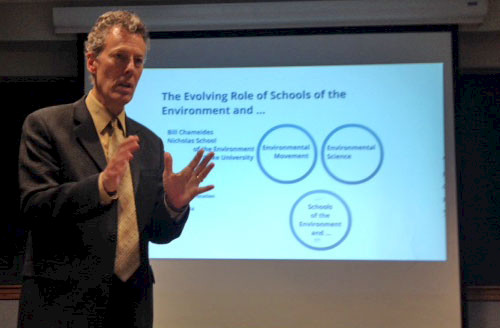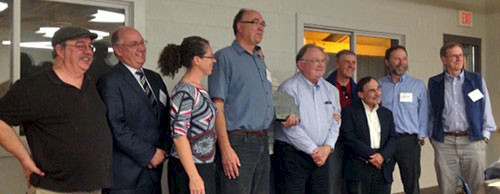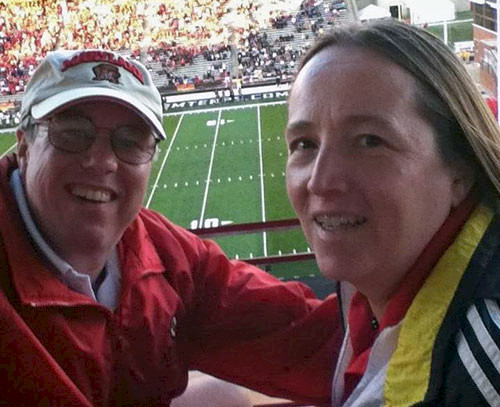University of Maryland Center for Environmental Science faculty convocation: Bill Chameides, President's Award, new joint degree program, remembering Debbie Morrin-Nordlund
Bill Dennison · | Science Communication |On May 1-2, we held our annual UMCES faculty convocation- this year's convocation was hosted by Horn Point Laboratory. Our guest speaker was Bill Chameides, the Dean of the Nicholas School of the Environment at Duke University. The focus of this year's convocation was 'The future of graduate education at UMCES', as we have a new joint program and are in the midst of a curriculum revision for the multi-campus Marine-Estuarine-Environmental Sciences program. The annual President's Award for excellence in science application was awarded by President Don Boesch to Professor Jeff Cornwell for his contributions to Poplar Island restoration and Conowingo dam and reservoir scientific advising.

Bill Chameides gave an interesting talk on the environmental movement, environmental science and graduate environmental education. Bill made a bold statement that schools of the environment should be 'out of business' in 40 years time, since environmental issues should become part of every aspect of education, e.g., business, law, medicine, arts, etc., instead of contained within a separate school. Bill's attitude was that the Nicholas School of the Environment was a sandbox, and he was happy that other programs came and played in their sandbox and even took the sand. He distinguished between the overt goals of research and education but the covert goal of 'infiltration' for Nicholas School graduates. By 'infiltration', he was referring to the concept of placing environmentally aware people into the boardrooms, congressional seats and other decision-making entities.

Bill also talked about the transitions between 'pure' science, policy-relevant science, normative science and advocacy. Bill's history of the environmental movement was remarkably similar to one that I developed for the Science for Environmental Management course that I co-teach with Don Boesch. Bill's slant on the history was to distinguish between conservation and preservation. Bill also referred to the importance of art in environmental perceptions, something that I share, e.g., the poetry and art blog posts that I make as part of the 'Scientists who made a difference' series. Bill's talk engendered a robust discussion with UMCES faculty which continued into dinner and into the evening.
The first joint graduate degrees between the University of Maryland Center for Environmental Science and the University of Maryland, College Park are going to be awarded this month, thanks to the advancement to candidacy that we obtained last year, thanks in a large part to the efforts of Ed Houde, UMCES Vice President for Education. In order to create a joint degree, UMCES needed to develop an official seal. Ed unveiled the new UMCES seal, which is an artistic representation of the most historic feature of our institution - a bas relief sculpture on the oldest building; Beaven Hall built in 1931. In addition to the marine organisms, a fish, crab and oysters, oak leaves were added so that the terrestrial science carried out by UMCES would be represented.

UMCES President Don Boesch awarded Jeff Cornwell the President's Award for excellence in science application. Each year, Don selects a unique sculpture that represents the science of the awardee, and Jeff received a beautiful sculpture with layers of slate to signify his research on biogeochemistry of sediments. After Jeff received his award, Don invited previous recipients of the President's Award to join him and the following previous awardees were present: Al Place, Tom Miller, Victoria Coles, Don "Mutt" Meritt, Ray Morgan, Ed Houde, Larry Sanford, Walter Boynton and Tom Fisher.
We had a somber moment of reflection for the MEES Assistant Director Debbie Morrin-Nordlund (1962-2014) who tragically passed away recently. Debbie was a MEES alumnus who worked tirelessly on behalf of the graduate students and faculty of the MEES program. The MEES program spans five different universities: University of Maryland Center of Environmental Science (UMCES); University of Maryland College Park (UMCP); University of Maryland Baltimore County (UMBC); University of Maryland Eastern Shore (UMES); University of Maryland Baltimore (UMB), hence, the critical importance of someone to keep track of each and every student. Debbie was the nexus for both graduate students and the MEES faculty for the past 17 years. She was the heart and soul of MEES and when the Integration and Application Network hosted the annual MEES colloquium in Annapolis, I learned first hand how important Debbie was as the corporate memory for MEES and the unsung hero for making every thing work. More information about Debbie can be found on the MEES web page.

About the author
Bill Dennison

Dr. Bill Dennison is a Professor of Marine Science and Vice President for Science Application at the University of Maryland Center for Environmental Science.